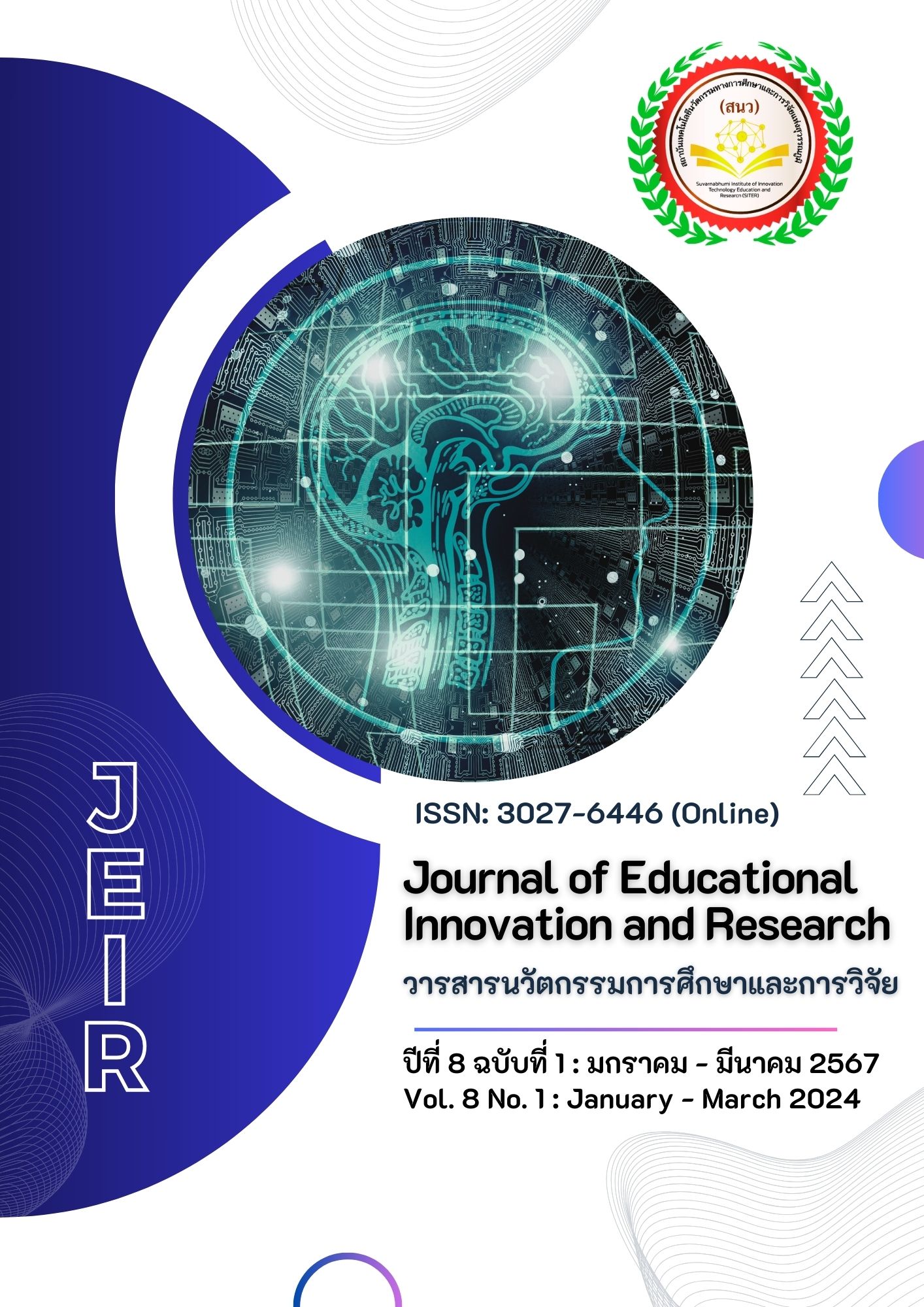Forecasting the Selling Prices of Non-Performing Asset Detached Houses in Bangkok by Machine Learning Techniques
Main Article Content
Abstract
Artificial intelligence is being used in the real estate industry to provide consumers with information that will make effective decisions to buy real estate. Additionally, it facilitates the optimal utilization of data by real estate business operators, which includes generating possibilities and raising competitive worth. This Article aimed to test the effectiveness of machine learning techniques in modeling for forecasting the selling prices of non-performing asset (NPA) detached houses in Bangkok. The research method is quantitative and uses machine learning concepts as the research framework. Data were gathered from 446 samples of non-performing asset (NPA) detached houses in Bangkok. They were selected by convenience sampling that have complete information according to the specified variables. Then, data were recorded in the checklist and analyzed by Descriptive statistics and machine learning techniques, including Support Vector Machine (SVM), Gradient Boosted Trees (GBT), Artificial Neural Network (ANN), and Ensemble Vote.
The research results were found that the obtained model derived from Ensemble Vote technique has the least Root Mean Square Error (RMSE) compared with Support Vector Machine (SVM), Gradient Boosted Trees (GBT), Artificial Neural Network (ANN), and Ensemble Vote techniques. The RMSE, R2 and Beta of the best model are 3,746,335.580 Bath, 0.5377 and 0.4919, respectively. Evidently, constructing a modeling for forecasting the selling prices of non-performing asset (NPA) detached houses in Bangkok using a variety of machine learning techniques will increase the overall efficiency of the forecast equation due to combining multiple classifiers with a clustering method can help reduce data bias. They can help each other to enhance the efficiency of data classification make a model more efficient. Real estate business entrepreneurs can apply machine learning techniques to analyze data to exploit data for decision-making. The results showed the potential of using machine learning techniques in predicting the prices of non-performing asset (NPA) detached houses by the data available from websites although there is not much information.
Article Details

This work is licensed under a Creative Commons Attribution-NonCommercial-NoDerivatives 4.0 International License.
References
Alpaydin, E. (2014). Introduction to machine learning (3rd ed). MIT Press.
Armstrong, H. (2015). Machines Thai learn in the wild. Nesta.
Berry, M. W., Mohamed, A., & Yap, B. W. (2020). Supervised and unsupervised learning for data science. Springer.
Cates, S., Lawrence, S., Penedo, C., & Samatova, V. (2017). A machine learning approach to research curation for investment process. Journal of Investment Management, 15(1), 39-49.
Dastres, R., & Soori, M. (2021). Artificial Neural Network systems. International Journal of Imaging and Robotics (IJIR), 21(2), 13-25.
Hair, J., et al. (2010). Multivariate data analysis (7th ed.). Pearson Education International.
Jiamwiriyakul, B. (2019). Portfolio return prediction in property development sector using neural network [Master’ s Independent Study, Mahidol University].
Kuflinski, Y. (2020). 6 ways artificial intelligence is reshaping real estate. Iflexion. https://www.iflexion.com/ blog/artificial-intelligence-real-estate.
Minsky, M., Papert, S. A., & Bottou, L. (2017). Perceptrons: An introduction to computational geometry. MIT Press.
Real Estate Information Center. (2021). The situation of the second-hand housing market across the country in the 4th quarter of 2020. Real Estate Information Center. https://www.reic.or.th/Upload/ PressRelease210304_32354_1614874695_ 87218.pdf.
Saigal, P. (2020). Support Vector Machines: Evolution and applications. Nova Science Publishers.
Sawangum, W. (2022). The online consumer hits for condominium photo using machine learning technique [Master’ s Thematic Paper, Dhurakij Pundit University].
Sunkpho, J., & Ramjan, S. (2020). Predicting condominium price in Bangkok using web mining techniques. Srinakharinwirot Research and Development Journal of Humanities and Social Sciences, 12(24), 15-27.
Thanwanont, P., Yingseri, C., Pongpetch, W., & Kangkajit, T. (2017). Predict stock price trends in stock exchange of Thailand using ensemble model. Journal of Information Science and Technology, 7(1), 12-21.
Tochaiwat, K. (2023). Machine learning transforms the real estate business. Bangkokbiznews. https://www.bangkokbiznews.com/tech/innovation/1088762
Vongsung, S. (2022). A study of investment model for residential real estate development: A case study of Nakhon Si Thammarat Province [Master’ s Independent Study, Prince of Songkla University].
Yang, X.S. (2019). Introduction to algorithms for data mining and machine learning. Candice Janco.


